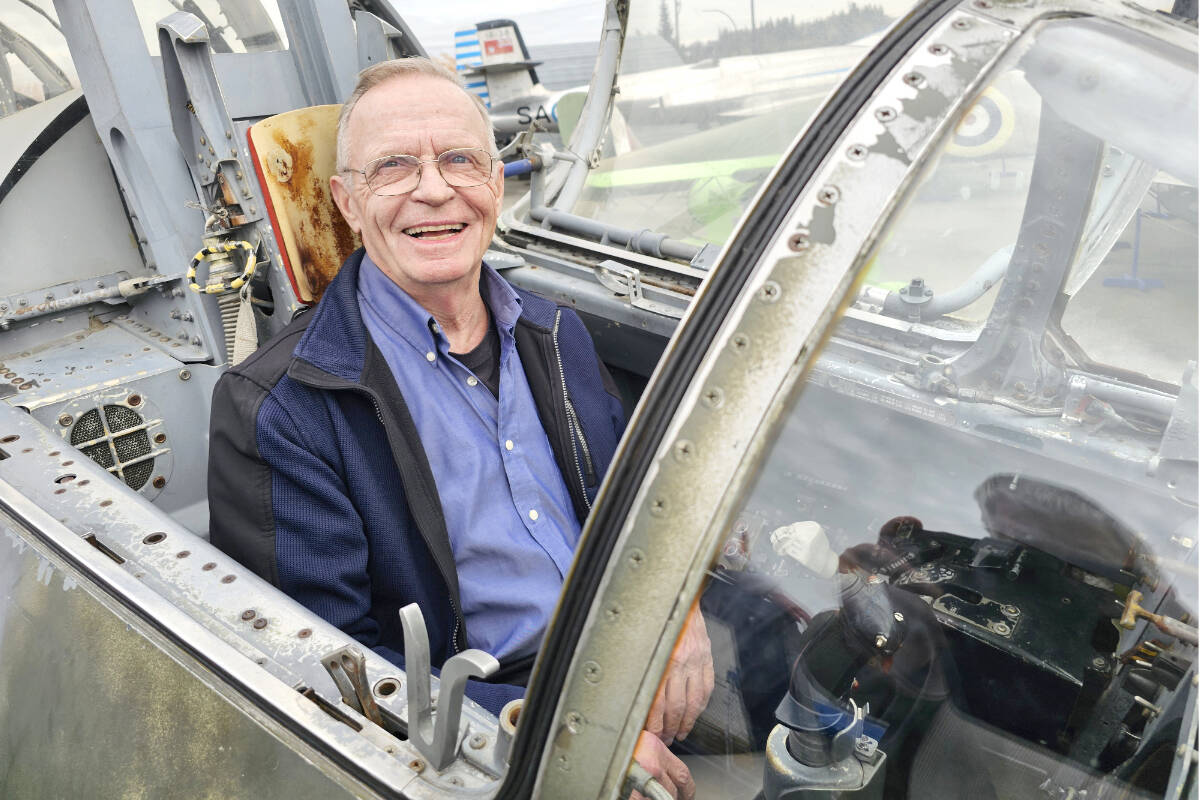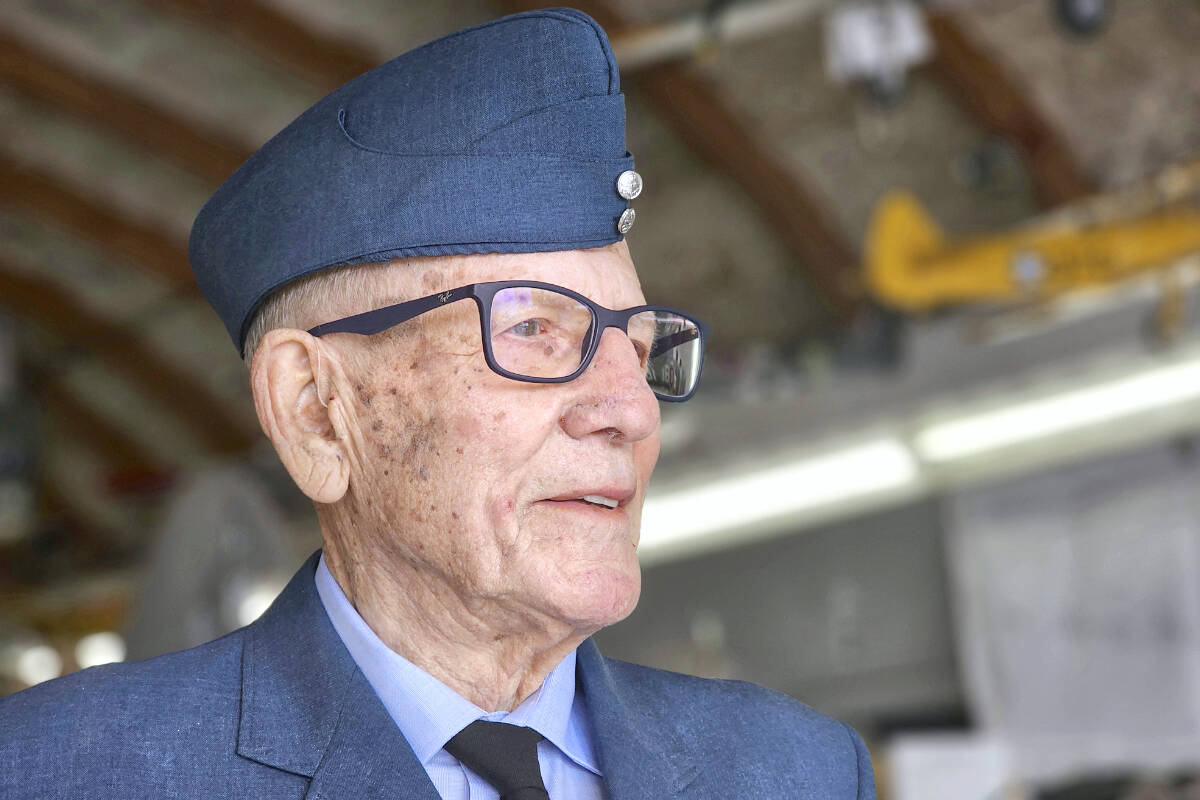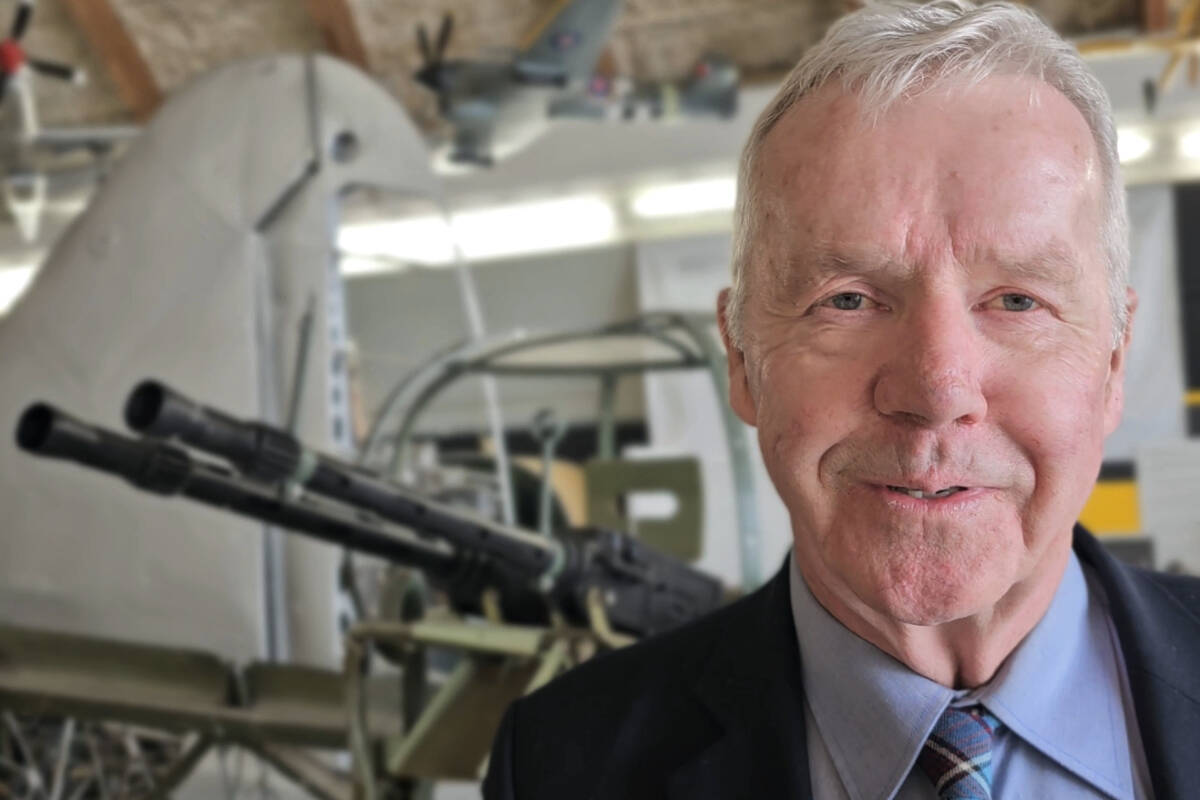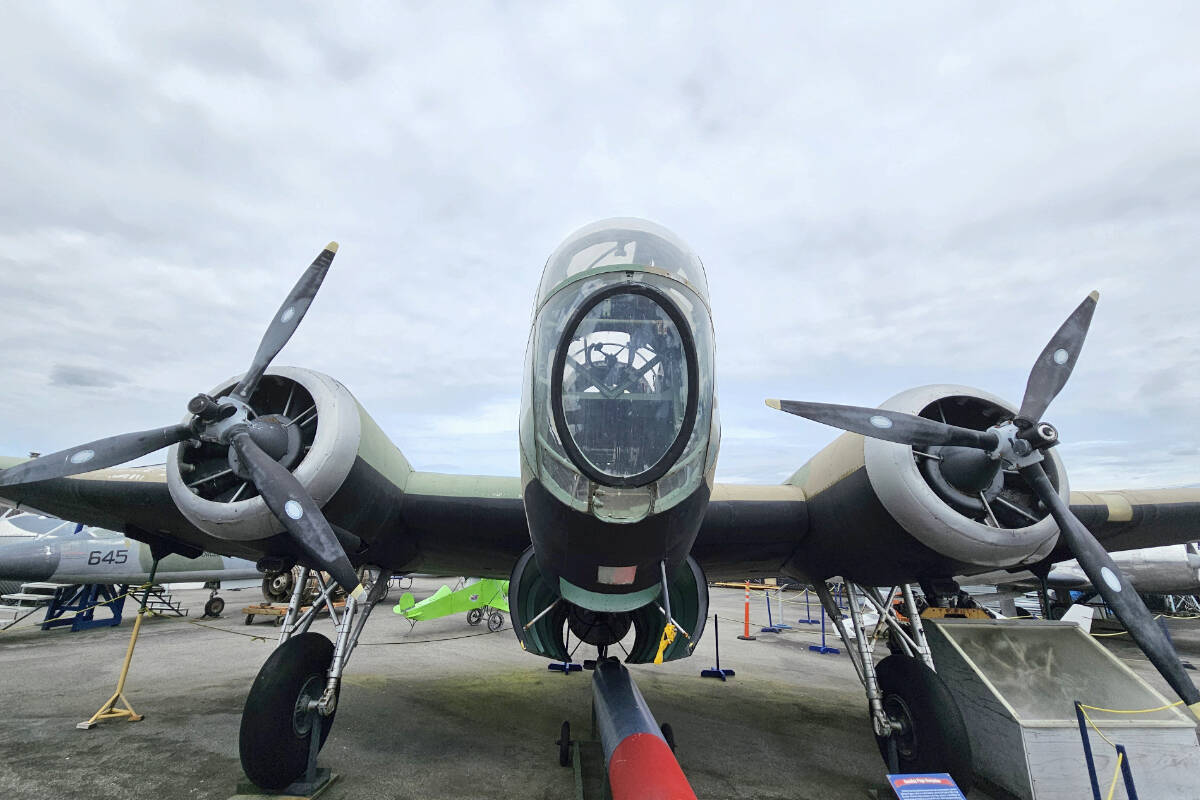George Kirbyson looked very much at home in the cockpit of the CF-104 Starfighter at the Canadian Museum of Flight at the Langley Airport.
On Monday, April 1, the museum celebrated the 100th anniversary of the Royal Canadian Air Force, and Kirbyson, a White Rock resident, was among several veterans who attended.
“I could fly it again,” Kirbyson smiled as he sat in the pilot’s seat..
“If I get the engines started, I’m sure I could fly it.”
Kirbyson explained the jet on display at the museum was a “dual,” a two-seater model for training, not quite identical to the single-seat supersonic fighter he spent 1200 hours flying in Europe during the Cold War era.
“It was a dream to fly and the job that we were doing with it was even more fantastic,” Kirbyson recalled.
“It was all low level, doing photo reconnaissance. We flew all over Europe.”
100 years ago, to the day, the RCAF was born.
READ ALSO: VIDEO: A day for dads at Canadian Museum of Flight in Langley draws crowds
The museum marked the anniversary with a display of historic aircraft, cockpit tours, a salute by local air cadets to veterans, and a special reception for former military pilots.
One of those veterans was featured speaker George Miller, who managed the Langley Airport for 21 years.
Miller said he grew up in the RCAF, joining as soon as he turned 18.
”They were like my mom and dad,” Miller said.
Miller started out flying the F-86 Sabre, calling it “a bulwark aircraft of the Cold War.”
“I had three tours on the F-86 Sabre and then went on to fly the Starfighter which took its place, [and it flew] twice the speed of sound. The F-86 was was supersonic as well, but the Starfighter was [often called] a missile with a man in it.”
Fellow RCAF fighter pilot Al French, a director of the museum, joined the RCAF in 1965 when he was 17.
“I had to get my parent’s permission.”
He went on to pilot training and was selected to be a fighter pilot, spending six years flying Starfighters in Germany and Cold Lake, Alberta.
“Still one of the fastest airplanes in the world,” French noted, “iideal for the mission that we had in Germany, which was low level strike bombing.”
French and Miller have known each other about 60 years, going back to when Miller had a tower built in the Mediterranean to teach RCAF pilots how to survive parachuting into the water.
“They would drag us behind the speed boat as if we landed in the ocean in the high wind and we had to extricate ourselves,” French recalled.
At least, the water was warm, French said, preferable to where they run the school today, “in the icy waters of Georgia Strait.”
READ ALSO: Canadian Museum of Flight volunteer was there from the beginning
READ ALSO: From Airbus to biplane at Langley museum of flight




